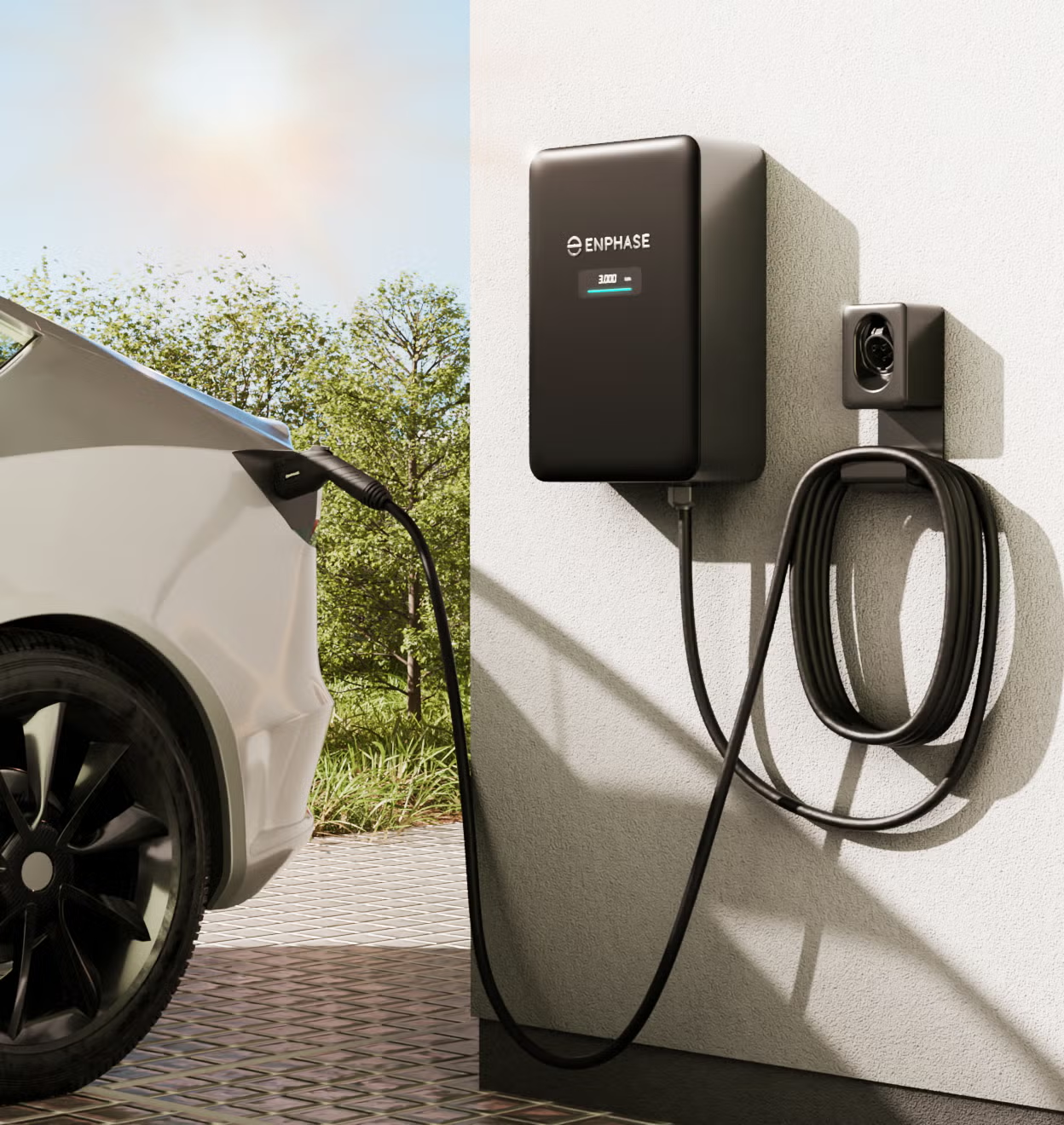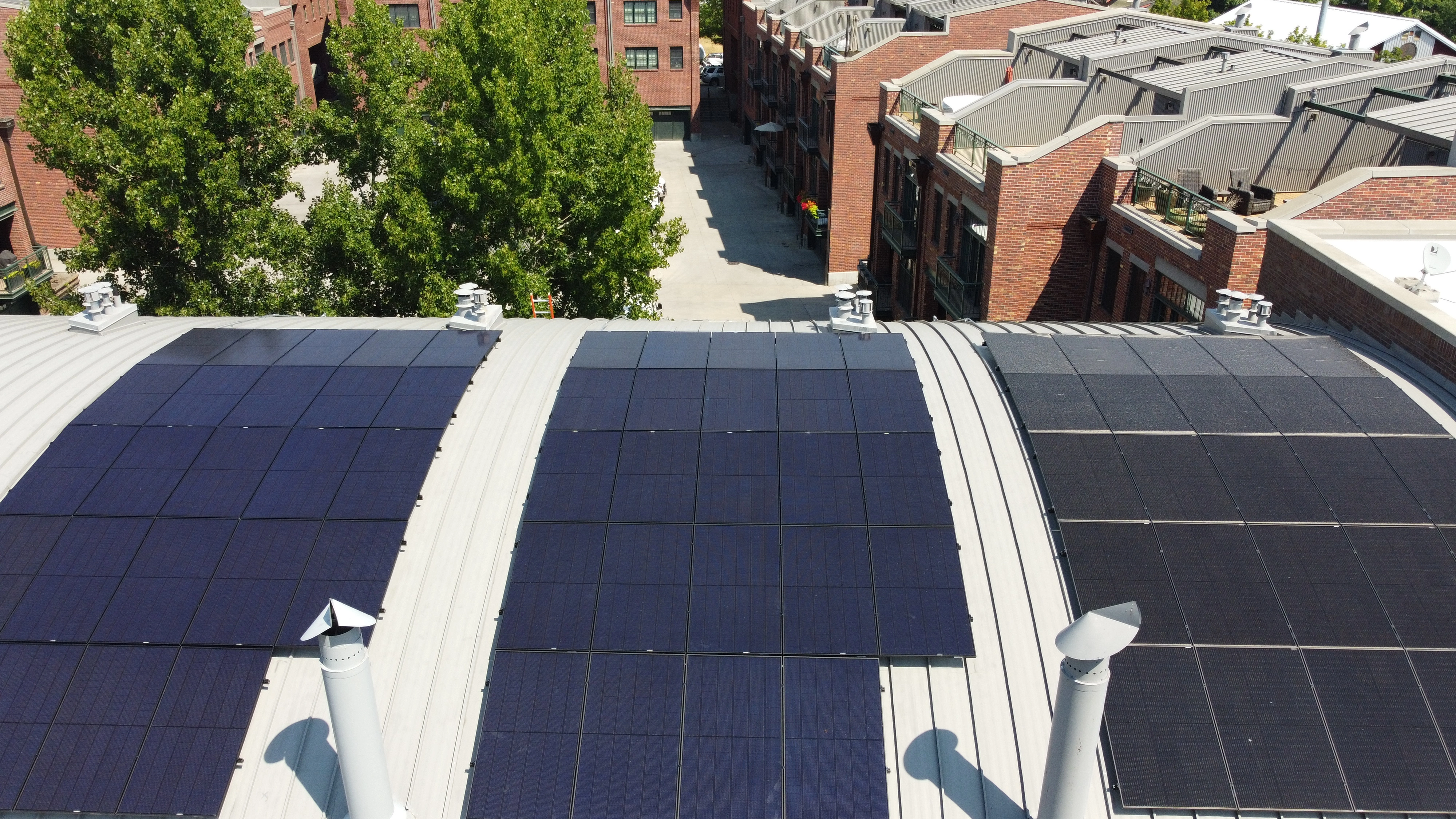Solar Panels in Redmond, OR – Benefits for Homeowners

As the world becomes increasingly aware of the importance of sustainable energy, homeowners in Redmond, Oregon, are discovering the numerous benefits of solar panels. With a climate that supports solar energy generation, Redmond is an ideal location for harnessing the sun's power.
Understanding Solar Energy
Solar energy is derived from the sun's rays and can be converted into electricity or heat. Solar panels, also known as photovoltaic (PV) panels, are the technology that captures sunlight and transforms it into usable energy. This renewable energy source is gaining traction as it offers a clean alternative to fossil fuels, reducing greenhouse gas emissions and reliance on non-renewable resources. As global awareness of climate change increases, more individuals and businesses are looking to solar energy as a sustainable solution to meet their energy needs while contributing to a healthier planet.
The Science Behind Solar Panels
Solar panels consist of numerous solar cells made from semiconductor materials, usually silicon. When sunlight hits these cells, it excites electrons, creating an electric current. This process is known as the photovoltaic effect. The generated electricity can be used immediately, stored in batteries, or fed back into the grid, providing homeowners with various options for energy use. Additionally, advancements in solar technology, such as the development of thin-film solar cells and bifacial panels, are enhancing efficiency and making solar energy more accessible. These innovations are crucial in maximizing energy output, especially in areas with limited space for traditional panel installations.
Solar Energy Potential in Redmond
Redmond enjoys a favorable climate for solar energy production, with an average of 164 sunny days per year. According to the National Renewable Energy Laboratory, solar panels in Oregon can produce between 4.5 to 5.5 kilowatt-hours (kWh) per square meter per day. This means homeowners can generate significant amounts of electricity, reducing their dependence on traditional energy sources. Furthermore, local incentives with the Energy Trust of Oregon and rebates for solar installations can further enhance the financial viability of adopting solar energy. The city is also increasingly investing in solar projects, aiming to promote sustainable practices and encourage residents to transition to renewable energy sources. As a result, Redmond is not just a prime location for solar energy production; it is also becoming a leader in the movement toward a greener future in Deschutes County.
Economic Benefits of Solar Panels
One of the most compelling reasons for homeowners to consider solar panels is the potential for economic savings. While the initial investment can be substantial, the long-term benefits often outweigh the costs.
Reduction in Energy Bills
Solar panels can significantly lower monthly energy bills. By generating their own electricity, homeowners can reduce their reliance on the grid, leading to substantial savings over time. In some cases, homeowners may even eliminate their electricity bills entirely. According to the Solar Energy Industries Association, the average homeowner can save between $10,000 and $30,000 over the lifespan of a solar panel system, depending on local energy costs and incentives. Additionally, as energy prices continue to rise, the savings from solar energy become even more pronounced, allowing homeowners to lock in lower energy costs for decades.
Incentives and Tax Credits
In addition to savings on energy bills, various incentives and tax credits are available for homeowners who install solar panels. The federal solar tax credit, also known as the Investment Tax Credit (ITC), allows homeowners to deduct a significant percentage of the cost of their solar system from their federal taxes*. In Oregon, state-level incentives, such as the Oregon Solar + Storage Rebate Program, can further reduce installation costs. These financial incentives make solar energy more accessible and appealing to homeowners. A full list of current Oregon solar incentives and tax credits can be found here.
Increase in Property Value
Another economic benefit of installing solar panels is the potential increase in property value. Homes equipped with solar energy systems often sell for more than comparable homes without solar. A study by the National Renewable Energy Laboratory found that homes with solar panels sold for an average of $15,000 more than those without. This increase in property value can be particularly advantageous for homeowners looking to sell in a competitive real estate market. Moreover, as the demand for sustainable living continues to rise, homes with solar installations may attract environmentally conscious buyers, further enhancing their market appeal.
Job Creation and Economic Growth
The solar industry also contributes to economic growth by creating jobs and stimulating local economies. As more homeowners opt for solar energy, the demand for skilled labor in installation, maintenance, and manufacturing increases. According to the Solar Foundation's National Solar Jobs Census, the solar industry employed over 250,000 workers in the United States as of 2021, a number that continues to grow. This job creation not only benefits individuals seeking employment but also supports local businesses and communities, fostering a more robust economy driven by renewable energy initiatives.
Environmental Advantages
Solar energy is not only economically beneficial but also environmentally friendly. As concerns about climate change and environmental degradation grow, many homeowners are looking for ways to reduce their carbon footprint.
Reduction of Greenhouse Gas Emissions
By switching to solar energy, homeowners can significantly reduce their greenhouse gas emissions. According to the U.S. Environmental Protection Agency, the average American household produces about 7.5 tons of carbon dioxide (CO2) annually from electricity use. By installing solar panels, homeowners can offset a substantial portion of these emissions, contributing to a healthier planet.
Conservation of Natural Resources
Solar energy is a renewable resource, meaning it can be harnessed without depleting the earth's natural resources. Unlike fossil fuels, which are finite and contribute to pollution, solar energy is clean and sustainable. By investing in solar panels, homeowners are playing a crucial role in promoting a more sustainable future.
Increased Property Value
Installing solar panels can also enhance the value of a home. Numerous studies have shown that homes equipped with solar energy systems tend to sell for more than comparable homes without solar. A report from the National Renewable Energy Laboratory found that homes with solar panels sell for an average of 4.1% more than those without.
Attracting Eco-Conscious Buyers
As more people become aware of environmental issues, the demand for energy-efficient homes is on the rise. Homebuyers are increasingly looking for properties that offer sustainable features, including solar panels. By investing in solar energy, homeowners can make their properties more attractive to potential buyers, leading to quicker sales and higher offers.
Energy Independence and Security
Energy independence is becoming increasingly important for homeowners, especially in an era of fluctuating energy prices and potential supply disruptions. Solar panels provide a means of generating electricity on-site, allowing homeowners to rely less on external energy sources.
Protection Against Rising Energy Costs
As energy prices continue to rise, homeowners with solar panels can shield themselves from these increases. By producing their own electricity, they can stabilize their energy costs over the long term. This predictability can be particularly beneficial for budgeting and financial planning.
Resilience During Power Outages
Solar panels can also enhance a home's resilience during power outages. When paired with battery storage systems, homeowners can store excess energy generated during sunny days for use during blackouts. This capability provides peace of mind, knowing that essential appliances can remain operational even when the grid is down.
Choosing the Right Solar System
For homeowners in Redmond considering solar panels, selecting the right system is crucial. Various factors can influence the decision, including energy needs, budget, and available space.
Types of Solar Panels
There are several types of solar panels available, each with its own advantages and disadvantages. The most common types include monocrystalline, polycrystalline, and thin-film solar panels. Monocrystalline panels are known for their high efficiency and longevity, while polycrystalline panels are typically more affordable but slightly less efficient. Thin-film panels are lightweight and flexible, making them suitable for specific applications, but they generally have lower efficiency rates.
Consulting with Professionals
Before making a decision, it is advisable for homeowners to consult with solar energy professionals. They can provide valuable insights into the best systems for specific needs, as well as guidance on installation, maintenance, and available incentives. A professional assessment can help homeowners make informed choices that align with their energy goals.
Installation Process
Installing solar panels involves several steps, from initial consultation to final setup. Understanding the installation process can help homeowners prepare for the transition to solar energy.
Site Assessment
The first step in the installation process is a site assessment. Solar professionals will evaluate the property to determine the best placement for the panels, taking into consideration factors such as roof orientation, shading, and available space. This assessment is crucial for optimizing energy production.
Permitting and Installation
Once the site assessment is complete, the next step involves obtaining the necessary permits. Local regulations may require specific permits for solar installations, and professionals can assist with this process. After securing permits, the installation team will set up the solar panels, connect them to the electrical system, and ensure everything is functioning correctly.
Maintenance and Longevity of Solar Panels
One of the appealing aspects of solar panels is their relatively low maintenance requirements. However, homeowners should be aware of the best practices for maintaining their systems to ensure optimal performance.
Cleaning Solar Panels
In areas with minimal rainfall, solar panels may accumulate dirt and debris, which can hinder their performance. Homeowners may need to clean their panels periodically to ensure maximum sunlight absorption. This can often be done with a simple hose and soft brush, but professional cleaning services are also available for those who prefer assistance.
Conclusion
Solar panels offer a multitude of benefits for homeowners in Redmond, Oregon. From economic savings and environmental advantages to increased property value and energy independence, the advantages are compelling. As technology continues to advance and the demand for renewable energy grows, investing in solar panels is not just a trend but a step towards a more sustainable future. For homeowners considering this transition, the potential rewards are significant, making solar energy a wise choice for those looking to enhance their homes and contribute to a greener planet.
Ready to embrace the benefits of solar energy and contribute to a more sustainable future in Redmond? Look no further than National Solar, the Best of Bend Solar Energy Company for 2024. As a locally founded, family-owned business with 15+ years of experience, we're committed to making a positive impact on our environment. With our 10-Year Workmanship Warranty and 25-Year Manufacturer Warranty, you can trust in the quality and reliability of our service. Get a free solar estimate for your home today and join the clean energy movement with National Solar.
Calculate your potential energy cost without solar
Unlock affordable energy solutions
Every project includes design, permitting, installation, and support from our award winning installation team.

Solar Panel Installation
Custom-designed rooftop solar systems that slash your electric bill.

Battery Storage
Store your daytime solar power for nighttime usage or power outages.

Ground Mounts
Ideal for properties without good roof access. Same savings, more flexibility.

EV Chargers
Power your electric vehicle at home for less, powered by your solar system.

Solar System Removal & Reinstalls
Getting a new roof? We’ll handle your solar removal and reinstall.

Commercial Solar
Cut operating costs, claim Oregon solar incentives and benefit from tax advantages.
